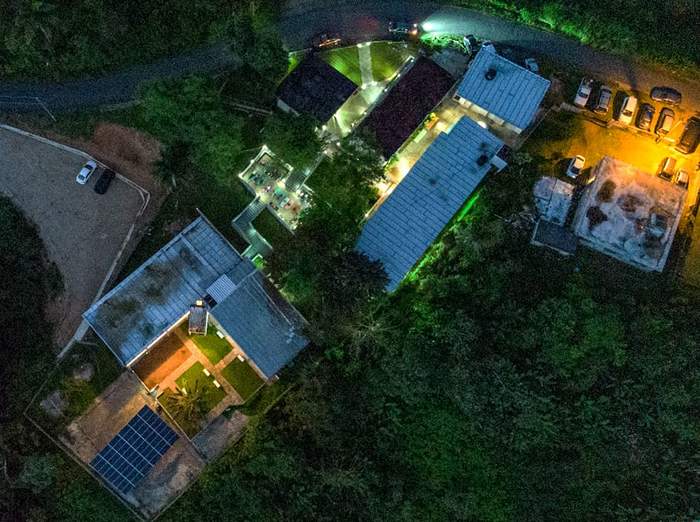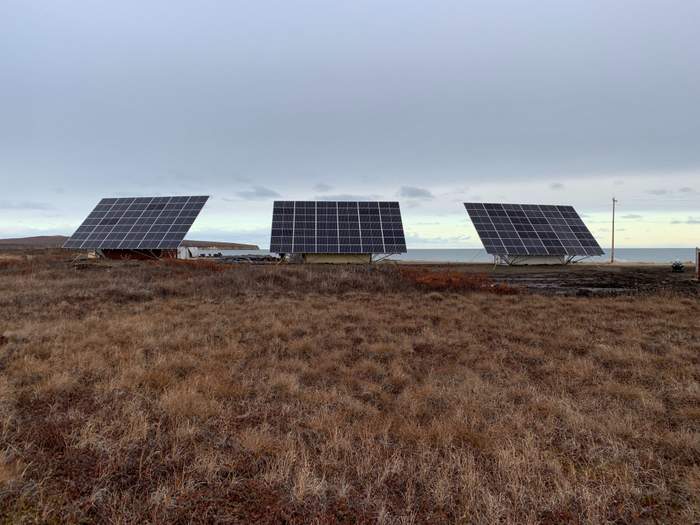A pioneering collaboration between MCHC Health Centers, Direct Relief and BoxPower, is adding crucial backup power plan for MCHC. Recent wildfires spurred this partnership, which has resulted in a $1.2 million solar battery microgrid power solution that will operate MCHC’s Hillside Health Center critical facilities for as long as necessary during a power outage, while significantly reducing carbon dioxide emissions.
The entire project cost is fully funded by Direct Relief, a humanitarian aid organization with a mission to improve the health and lives of people affected by poverty or emergencies, and the California Public Utilities Commission.
Power outages caused by recent fires or fire threats caused MCHC to shutdown several times in 2018 and 2019. A planned power shut down in 2019 caused the closure of all four MCHC locations, resulting in missed visits by approximately 2,400 patients, a loss of vaccines, income loss for staff, and a loss of $300,000 in revenue. Given the extent of the losses, both to the community and the organization, MCHC quickly began looking for backup power solutions.
Public Safety Power Shutoffs (PSPS) are now a standard occurrence in fire ravaged California. They occur when weather conditions are especially hot, dry, and windy. After the PG&E power shut-offs in 2019, Tiffany Williams, MCHC’s Director of Ancillary Operations, contacted Direct Relief looking for possible funding sources for backup power. That organization’s Vice President of Emergency Response, Andrew MacCalla, steered Williams towards renewable battery power and funding from a state program called the Self-Generation Incentive Program (SGIP), which focuses on communities that are low-income, medically vulnerable, and at high fire risk.
MCHC’s Hillside Health Center project in Ukiah, received $450,000 from SGIP and will receive $735,000 from Direct Relief to cover the cost of the solar microgrid. MCHC’s Lakeport location, Lakeview Health Center, is pending SGIP’s technical review and should be approved for an additional $450,000 battery.
Especially as COVID 19 continues to expand across the state, “Power is a prerequisite for health. Without power, critical health services can’t be provided – life-saving medicines go bad, electronic health records can’t be accessed, essential medical equipment can’t be powered, and vital community health facilities serving the most vulnerable shut down,” said MacCalla. “The lack of reliable power has direct health consequences for individuals and families, especially for people living in low income and vulnerable communities who are struggling every day.”
Why a solar battery microgrid?
BoxPower, working closely with Williams to pilot its new Energy Audit and System Integration (EASI) software, identified what services and equipment were essential during a power outage and determined that a battery alone would only give Hillside Health Center twelve hours of power, which was not enough to withstand a power outage of several days.
By creating a solar battery microgrid solution, however, they can keep power on for critical services indefinitely. BoxPower’s solar battery microgrid, in addition to avoiding lost revenue and spoiled medications, will save MCHC $85,000 in utility costs and offset 285,000 pounds of carbon dioxide, annually.
MCHC’s new backup power plan serves as a shining example for a host of other healthcare clinics serving vulnerable communities in high fire, rural areas. “I want to thank Direct Relief and BoxPower on behalf of MCHC and our patients for their partnership and outstanding commitment to helping us provide quality healthcare to our community at all times,” said MCHC Chief Executive Officer, Scott McFarland.
Following MCHC’s success, Direct Relief has identified up to 100 additional healthcare centers that also could benefit from this innovative solar microgrid model with the SGIP funded battery. Direct Relief and BoxPower are currently performing critical facility energy audits at 15 of the 100 healthcare centers to ensure these lifesaving facilities continue to operate through increasingly common power outages.
More on BoxPower
BoxPower’s modular microgrid systems deliver reliable and renewable power as a cost-effective alternative to diesel generators. BoxPower’s products are pre-engineered to guarantee 100% reliable power under the most demanding conditions. From tropical storms to arctic snow loads, BoxPower systems are the toughest on the market. BoxPower’s product range is scalable and can be configured to meet a broad range of use cases and applications.
BoxPower is an employee-owned social enterprise helping communities, governments, businesses, humanitarian and emergency relief agencies to access off-grid power rapidly and provide energy resilience when power supply from the grid is unavailable or unreliable.
— Solar Builder magazine
[source: https://solarbuildermag.com/news/case-study-mchc-health-centers-solar-battery-microgrid/]



Leave a Reply
You must be logged in to post a comment.